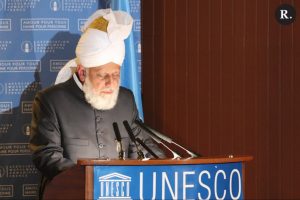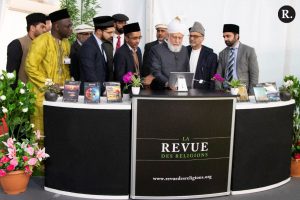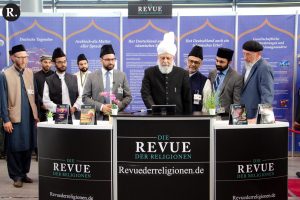For many years now there has been an ongoing debate, particularly in Western societies, as to whether the burning of religious literature is an action that falls within freedom of expression. Typically, the target of desecration has been the Holy Qur’an. The issue was finally taken up by the UNHRC (United Nations Human Rights Council). This was prompted by a round of desecration in Sweden a few months ago.

© Shutterstock
Ayesha Mahmood Malik, UK
Last month, the UN human rights council approved a controversial resolution urging countries to, ‘address, prevent and prosecute acts and advocacy of religious hatred´ following incidents of Qur’an burning in Sweden. The resolution was met with strong opposition from the US, EU and other western nations, who argue that it conflicts with laws on free speech. On Monday, in an apparent act of defiance, a group called ‘Danish Patriots’ set the Holy Qur’an alight outside the Iraqi embassy in Copenhagen. It follows weeks of unrest in many Muslim countries after a Qur’an was burnt by an Iraqi man living in Sweden on the first day of the Eid-ul-Adha holiday.
This is not the first-time laws on religious freedom have locked horns with those on free speech, the debate infamously exploded during the controversy of drawing caricatures of the Holy Prophet Muhammad in Denmark several years ago and in 2015 triggered the Charlie Hebdo shootings after the magazine published similar cartoons. EU countries along with the US have almost sanctified the freedom of expression ideal, so much so that even nominal attempts to place legitimate restrictions thereto are considered sacrilegious.
Yet such restrictions are already written into the European Convention on Human Rights (ECHR) and other international law instruments including the International Covenant on Civil and Political Rights, both containing qualifying clauses to the articles guaranteeing freedom of expression, which state that the right carries special ‘duties and responsibilities’ and may thereby be subject to necessary restrictions. Pertinently, both these instruments are unanimous in their support for placing legitimate restrictions on the freedom of expression in order to respect or protect the rights and reputations of others.
The Quranic standpoint on free speech mirrors the philosophy behind these provisions calling for speech to be limited in particular circumstances, including where it would harm the rights and reputations of others. The Qur’an provides that if discourse is to be undertaken on thorny issues, it must fulfil the requirements of morality, dignity and civic virtue. God states that, ‘Call…with wisdom and goodly exhortation, and argue with them in a way that is best.’
The language stipulating the protection of the ‘rights and reputations’ of others is broad and would include within its ambit examples of expression such as caricatures of holy personages and defiling religious symbols, especially since these provisions have been invoked in order to pass legislation making holocaust denial a crime in certain EU countries. It is also important to remember that free speech is not an absolute right and the dangers of manipulating language in order to advance pernicious ideologies resulting in genocide are well documented. This was particularly the case where vile language was used in order to spur genocide against the Tutsis in Rwanda.
Thus, the framework of rights is inextricably linked with the framework of duties – after all, a right can only be fulfilled when its corresponding duty is discharged. When it comes to the question of free speech, particularly within the context of religious hatred however, western nations appear to be adopting a new form of radical secularism that paradoxically conflicts with their own ideals on guaranteeing religious freedom.
About the Author: Ayesha Mahmood Malik is the Editor of the Law and Human Rights Section of the Review of Religions magazine. She is interested in Law and Religion, in particular Islam and Human Rights, the role of media in crisis reporting, International Human Rights and the import of religion on radicalisation. She has spoken frequently on these issues in the national media and various universities in the UK, including the University of Oxford and the London School of Economics. She is a graduate of Harvard Law School.




Add Comment